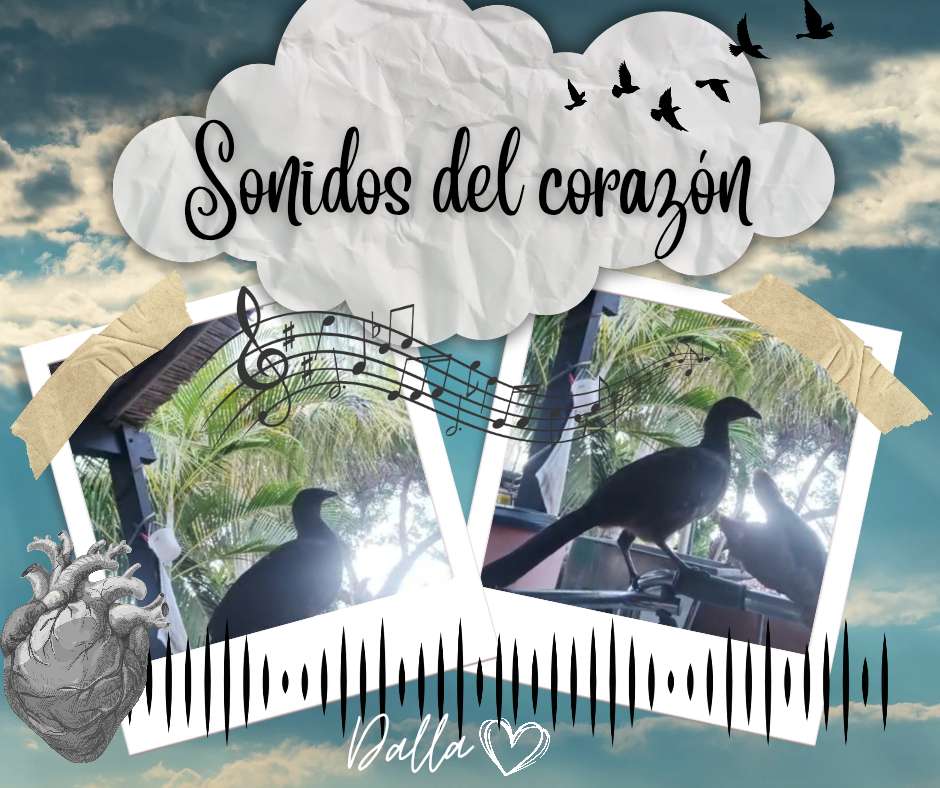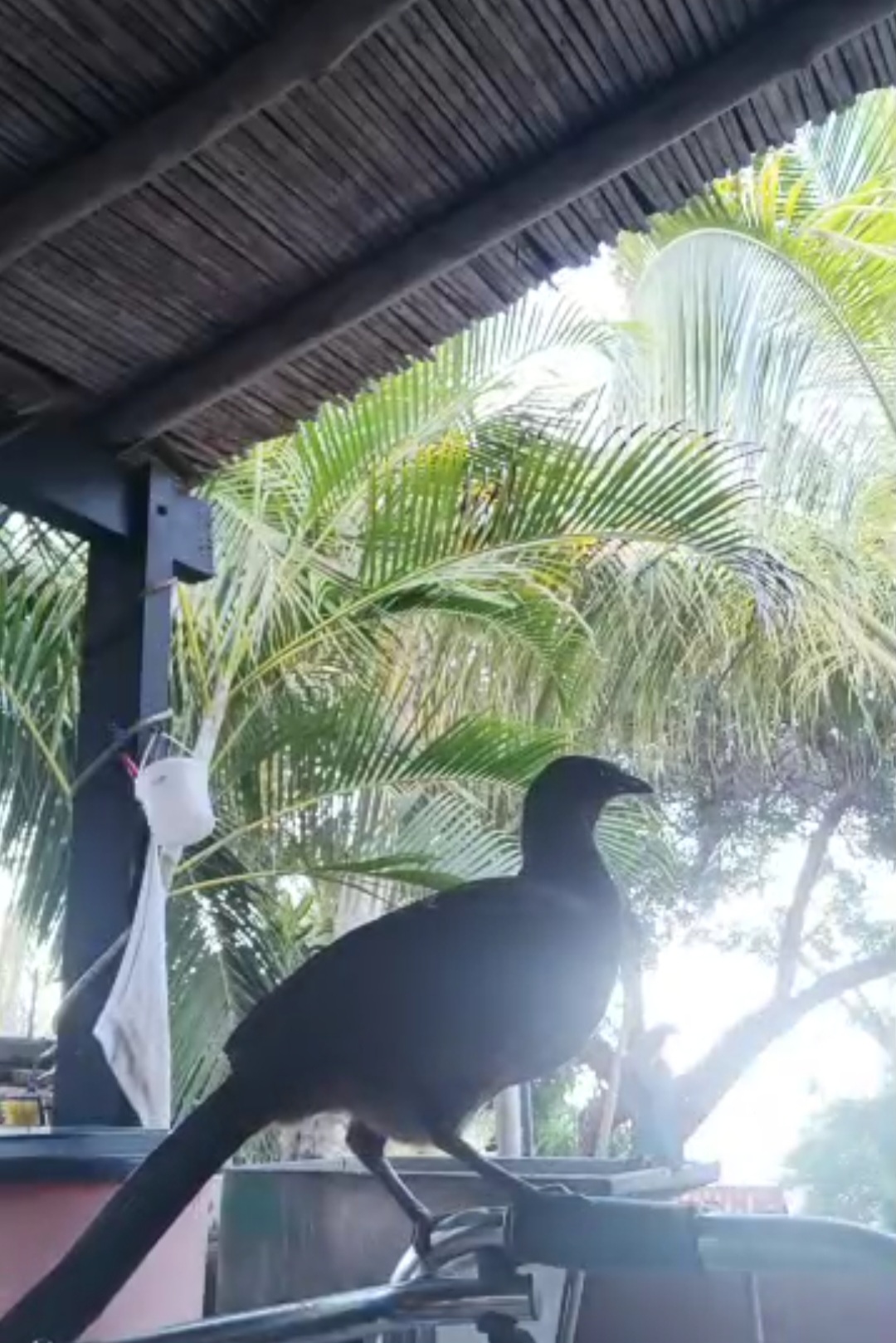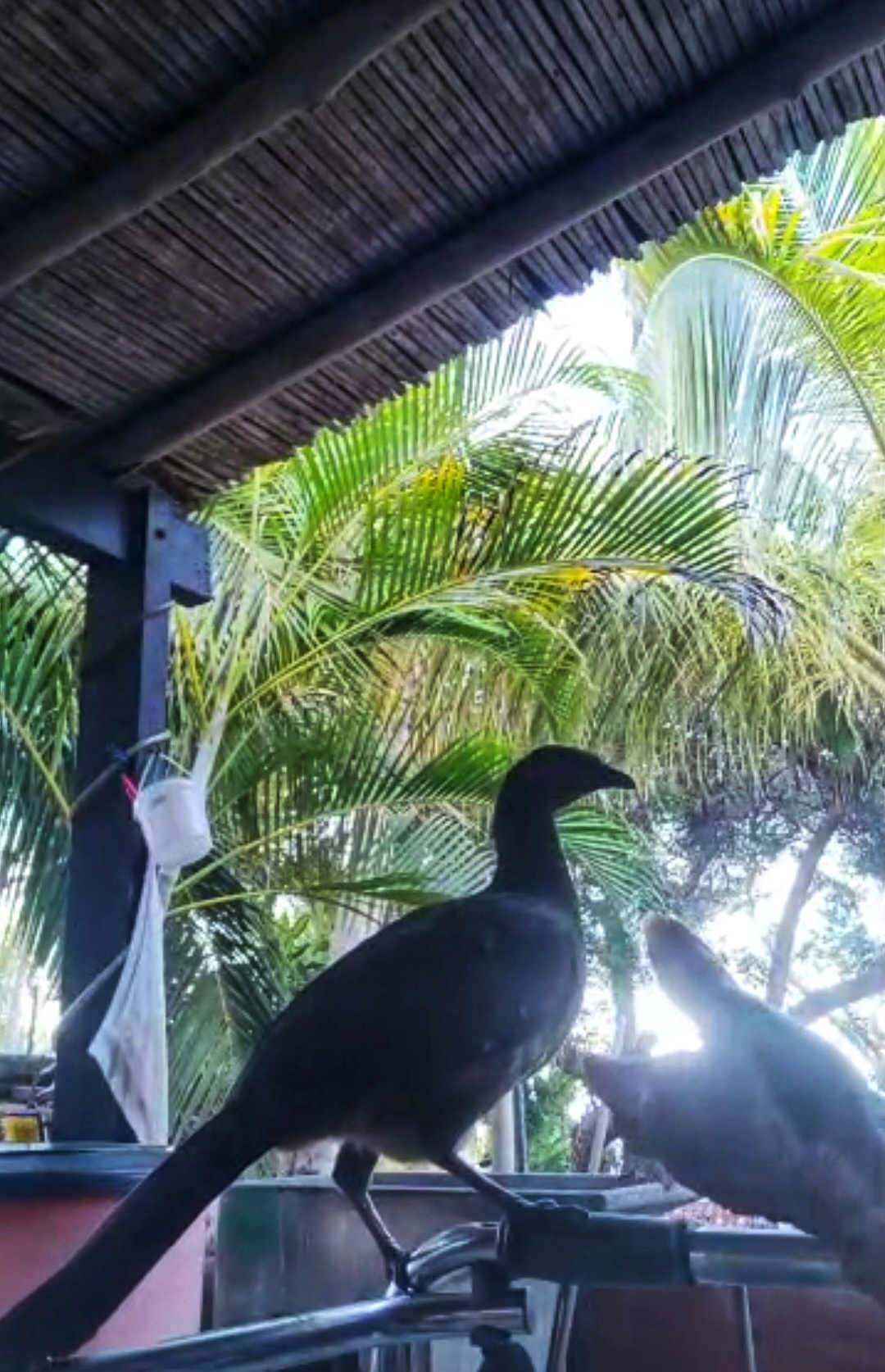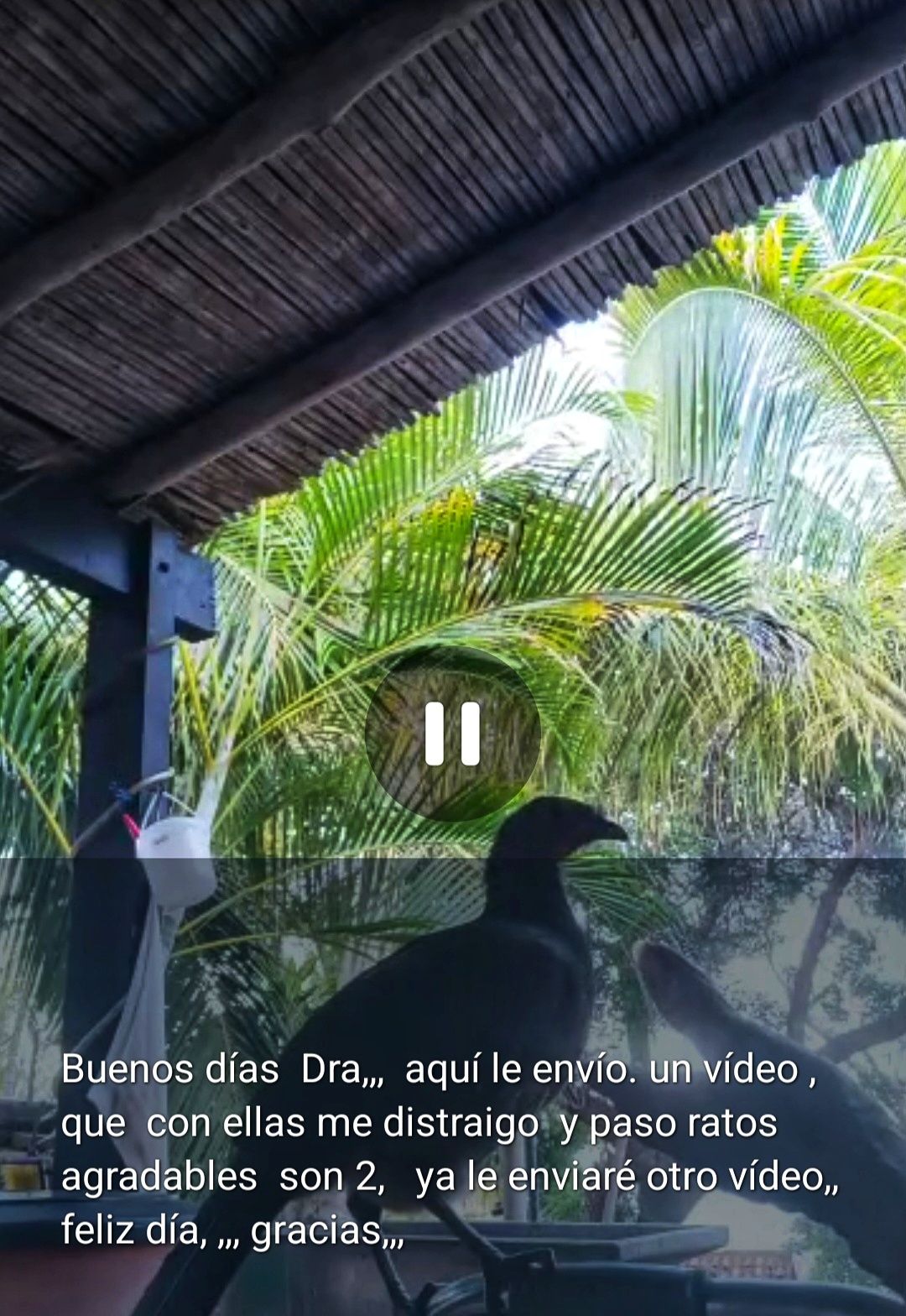
La vida es como un soplo cardíaco: a veces se percibe con gran intensidad y, en otras, apenas se escucha del todo, aunque siempre está ahí. Muchas veces se acompaña de latidos irregulares; es como si el corazón bailara con compases variables, dependiendo de la música, hasta que ya no encuentra el ritmo para seguir el baile. Quizás no entiendan aún de qué estoy hablando, pero permítanme explicárselos con una metáfora musical...
En medicina, conocemos unos sonidos que llamamos *soplos*. Son ruidos provenientes del corazón y sus diferentes estructuras, audibles generalmente con el uso de un estetoscopio y que son indicativos de alteraciones estructurales y funcionales de este órgano.
Algunos se escuchan hasta *bonitos*. De hecho, hay algo que medimos en ellos a través de los electrocardiogramas: si los ruidos cardíacos son rítmicos o arrítmicos. Sí, así como lo leen, tal cual como en la música, los sonidos del corazón pueden tener ritmicidad y escucharse de una forma bastante musical.
Es más, los sonidos provenientes del corazón son bastante relajantes, no solo para los médicos, quienes nos calmamos cuando los oímos sonar como deberían. Incluso el sonido que más relaja a los bebés, por ejemplo, es el latido del corazón de su mamá. Por ello les gusta tanto dormirse en sus brazos: por la cercanía que les permite escucharlo y porque lo relacionan con el sonido que percibían dentro del vientre materno.
>Life is like a breath: sometimes it is perceived with great intensity and other times it is barely audible, but it is always there. It is often accompanied by irregular heartbeats; it is as if the heart were dancing to varying rhythms, depending on the music. Perhaps you do not yet understand what I am talking about, but let me explain it to you with a musical metaphor.
>In medicine, we know of sounds that we call *murmurs*. These are noises coming from the heart and its different structures, usually audible with the use of a stethoscope, and indicative of structural and functional alterations in this organ.
>Some even sound *beautiful*. In fact, there is something we measure in them through electrocardiograms: whether the heart sounds are rhythmic or arrhythmic. Yes, just as you read it, just like in music, the sounds of the heart can have rhythm and sound quite musical.
>What's more, the sounds coming from the heart are quite relaxing, not only for doctors, who calm down when we hear them sounding as they should. Even the sound that relaxes babies the most, for example, is their mother's heartbeat. That's why they like to fall asleep in her arms so much: because of the closeness that allows them to hear it and because they associate it with the sound they heard inside the womb.
***

***
Otro ejemplo son los ruidos blancos que usamos en algunos adultos que sufren de trastornos de ansiedad o del sueño, y que a menudo incluyen este tipo de sonidos. Todo esto tiene su basamento científico: nuestra corteza cerebral se activa en lugares específicos que inducen la activación del sistema parasimpático y, con ello, la relajación de la persona.
Estos sonidos son tan importantes que, gran parte de las veces, los usamos para detectar muchas enfermedades, porque en ocasiones se les anexan otros ruidos diferentes. Es ahí donde entra el papel de los *soplos*, aquellos de los que les hablé al inicio y la verdadera razón de este post.
Los soplos se escuchan tal como su nombre lo indica, como si soplaran en el interior de una cavidad; es como la entrada de aire a un instrumento musical. Si se combinan los ruidos cardíacos con los soplos, se pueden crear composiciones muy peculiares.
Existen otros sonidos que se pueden agregar, y de hecho los llamamos así: *agregados cardiovasculares*. La mayoría son muy característicos y, entre todos, pueden generar una gran banda sonora. Pero ¡cuidado!, esa gran banda no siempre actúa con regularidad y no debemos dejarnos engañar porque se escuchen «bonitos».
>Another example is white noise, which we use for some adults who suffer from anxiety or sleep disorders, and which often includes this type of sound. All of this has a scientific basis: our cerebral cortex is activated in specific areas that induce the activation of the parasympathetic nervous system and, with it, relaxation.
>These sounds are so important that, in many cases, we use them to detect many diseases, because sometimes other different noises are attached to them. This is where the role of *murmurs* comes in, the ones I mentioned at the beginning and the real reason for this post.
>Murmurs are heard just as their name suggests, as if blowing into a cavity; it is like air entering a musical instrument. If heart sounds are combined with murmurs, very peculiar compositions can be created.
>There are other sounds that can be added, and in fact we call them that: cardiovascular additions. Most are very characteristic and, together, they can create a great soundtrack. But be careful! That great band doesn't always perform regularly, and we shouldn't be fooled by how “beautiful” they sound.
***

***
Muchas veces, en esa banda llamada *Ruidos cardíacos*, cada instrumento actúa por sí solo, cada integrante va a su propio ritmo y, a veces, se cansan de no lograr encontrar los compases de ninguna forma. Esto genera un severo desastre entre los músicos, quienes terminan lanzando todas las hojas de la composición por los aires.
Cuando esto ocurre, la música puede llegar a detenerse por completo. El director de la orquesta intenta dirigirlos, intenta con su varita hacer que empiecen nuevamente y que cada grupo haga su trabajo, pero los músicos pueden sentirse muy agotados de tanto intentarlo. Es ahí cuando el director se enoja al principio, ejerce presión durante un tiempo, pero, como todo en la vida, se agota y puede llegar a darse por vencido.
Cuando el director de esa orquesta (es decir, el corazón) decide darse por vencido, es porque el asunto ya se le fue de las manos. Todos se retiran, lanzan los instrumentos al piso, dejan las partituras a un lado, cada cual agarra su camino, apagan las luces del salón y deciden abandonar esa maravillosa obra sonora.
Y así, en un abrir y cerrar de ojos, algo completamente grandioso, la banda sonora más hermosa jamás escuchada, creada por los mejores músicos existentes y capaz de calmar desde el más pequeño al más grande, se apaga para siempre. Es ahí cuando nos toca a nosotros dar la noticia más dolorosa a los sobrevivientes: ha llegado el momento de despedirnos.
>Often, in this band called *Heart Sounds*, each instrument plays on its own, each member follows their own rhythm, and sometimes they get tired of not being able to find the beat. This causes a serious disaster among the musicians, who end up throwing all the sheet music into the air.
>When this happens, the music can come to a complete halt. The conductor tries to direct them, trying with his baton to get them to start again and for each group to do their job, but the musicians can feel very exhausted from trying so hard. That's when the conductor gets angry at first, puts pressure on them for a while, but, like everything in life, he gets exhausted and may give up.
>When the conductor of that orchestra (that is, the heart) decides to give up, it is because the matter is already out of his hands. Everyone leaves, throws their instruments on the floor, leaves the sheet music aside, each one goes their own way, turns off the lights in the hall, and decides to abandon that wonderful work of sound.
>And so, in the blink of an eye, something completely magnificent, the most beautiful soundtrack ever heard, created by the best musicians in existence and capable of calming everyone from the smallest to the greatest, is silenced forever. That is when it is up to us to deliver the most painful news to the survivors: the time has come to say goodbye.
***

***
Este escrito surgió esta semana después de la despedida que tuve que darle a un paciente que me acompañó durante un largo tiempo. Un señor al que le tenía mucho cariño porque me dio grandes aprendizajes; de hecho, escribí algunos posts por aquí gracias a él. Fue de los primeros pacientes que tuve desde que me gradué de especialista. Los conocimientos y la experiencia que obtuve gracias a él fueron invaluables, y solo quise dedicarle este escrito basándome en cómo imagino que su corazón un día dejó de luchar por mantener el ritmo, porque la cardiopatía que tenía ya no lo dejaba avanzar más. Espero que la analogía les haya funcionado para entender. Al señor le gustaba la música, y siempre encontré la forma de llegar a él hablándole de eso.
Gracias por todo lo que me enseñó, Sr. Esteban. Espero que por fin consiga la musicalidad que tanto añoraba, ahora al lado de la esposa que tanto extrañaba y que lo venía a acompañar siempre a través de sus pajaritos. Que Dios y los ángeles lo reciban en la gloria.
Y, a ustedes que me leyeron: les agradezco por pasar y leerme.
>This piece was written this week after I had to say goodbye to a patient who had been with me for a long time. I was very fond of this man because he taught me so much; in fact, I wrote a few posts here thanks to him. He was one of the first patients I had after graduating as a specialist. The knowledge and experience I gained thanks to him were invaluable, and I just wanted to dedicate this piece to him based on how I imagine that one day his heart stopped fighting to keep up the rhythm because the heart disease he had no longer allowed him to move forward. I hope the analogy has helped you understand. The gentleman loved music, and I always found a way to reach him by talking to him about it.
>Thank you for everything you taught me, Mr. Esteban. I hope you finally achieve the musicality you longed for, now alongside the wife you missed so much and who always accompanied you through your little birds. May God and the angels welcome you into glory.
>And to those of you who read this: thank you for stopping by and reading.
***
**Fuente de imágenes - Imagen Source**
[ESP] El primer banner fue editado con Canvas, el resto de las imágenes son screenshots de mis archivos personales.
[ENG] The first banner was edited with Canvas, the rest of the images are screenshots from my personal files.
***
**Edición de subtítulos y separadores - Editings subtitles and separators:**
@liveofdalla using PicsArt App.
***
